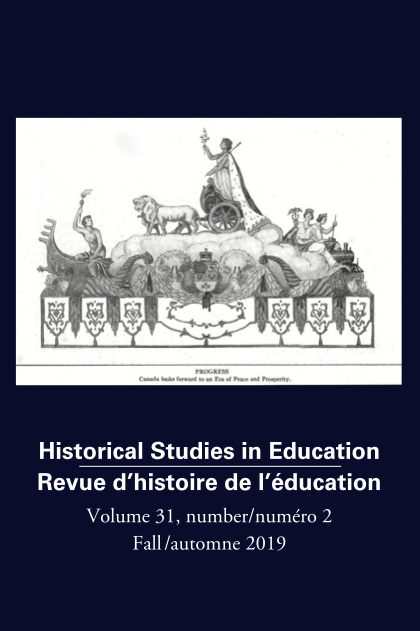The Determination of the Intellectual Equipment Is Imperative: Mental Hygiene, Problem Children, and the History of the Provincial Child Guidance Clinic of British Columbia, 1932–1958
- mental hygiene,
- eugenics,
- feebleminded,
- subnormal,
- sterilization
- hereditarianism,
- juvenile delinquency,
- child guidance,
- behavioural adjustment therapy,
- child psychiatry ...More
Abstract
The founding in 1932 of British Columbia’s provincial Child Guidance Clinic by Dr. A. L. Crease of Essondale Mental Hospital was seen as a medically progressive measure in the preventive work to stem mental ailments in children and prevent future adult mental illness. The clinic’s history and the influence of mental hygiene on early twentieth-century medical, educational, and social service agencies in BC that dealt with so-called “problem children” has received limited scholarly attention. This paper argues that the mental hygiene agenda was cultivated by psychiatrists working at mental asylums, teachers of “subnormal” children, child welfare advocates, and university-trained social workers, all of whom increasingly shaped child-saving policy in British Columbia. However, from its beginnings, the British Columbia provincial Child Guidance Clinic had an unstable clinical history and it was completely reorganized in 1946 and subsequently closed in 1958. The clinic’s history stood in stark contrast to Alberta’s child guidance clinics, which applied a rigid mental hygiene policy of eugenic sterilization until the early 1970s. This significant difference indicates the need for other detailed microhistories of child psychiatry and child guidance clinics across Canada.
